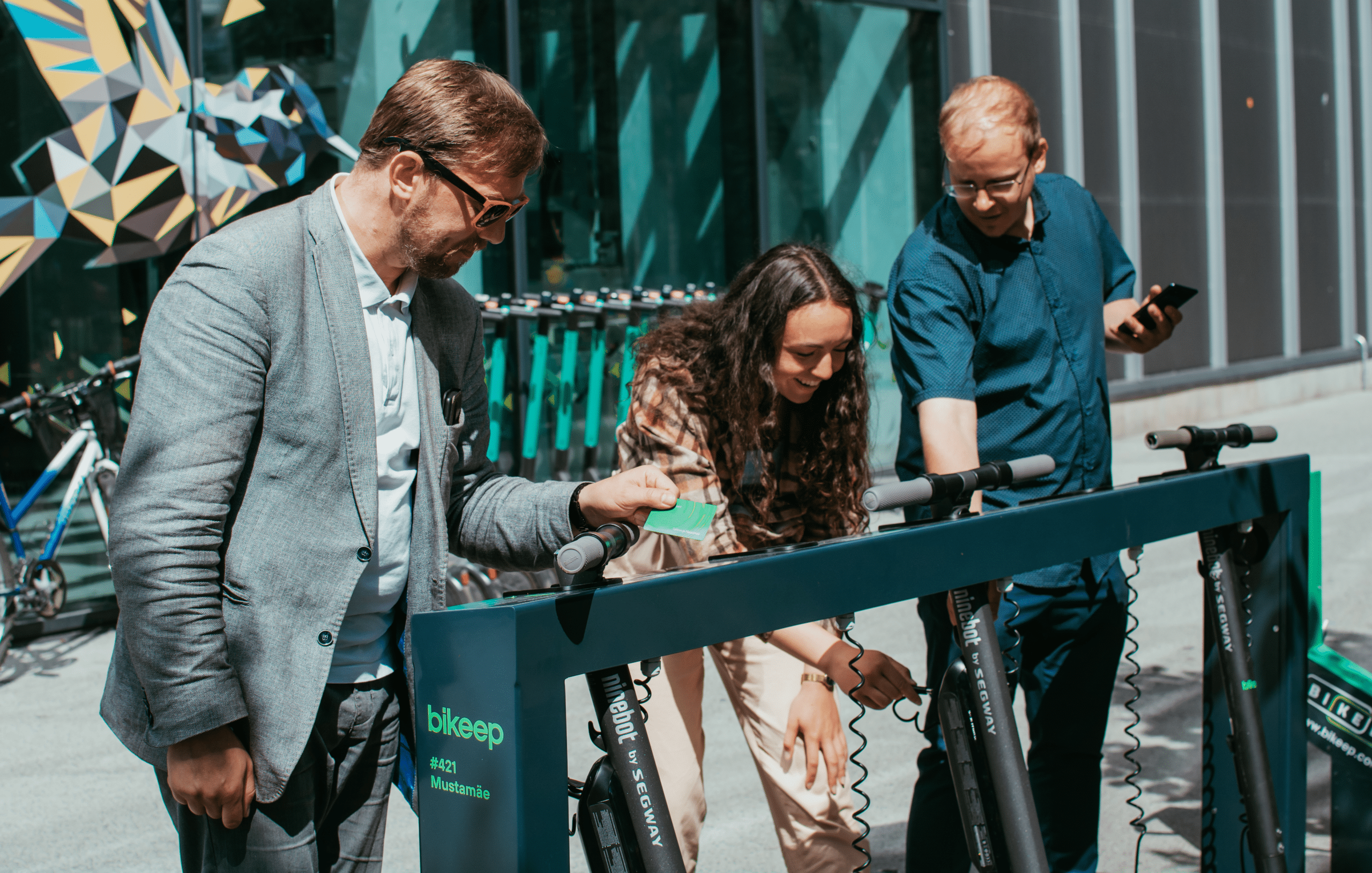Days, when scooters were laying in the streets causing accidents and frustration, might soon be over as operators are starting to respond to demands on cleaning the streets, finding solutions to non-efficient battery switching and overall sustainability in micromobility industry is under the scope.Sustainability in micromobility will benefit from the new laws as they are moving large e-scooter operators to take action.
Just recently just a little under USD 700M raised Bolt is the first to provide the proper infrastructure to its scooters. Bicycle and scooter parking and charging provider Bikeep CEO Kristjan Lind sees this as a new era for micromobility, unlocking the major possibilities to create 15-minute smart cities in bigger metropolitan areas.
“Micromobility promises a greener, healthier more sustainable future. It has, however, been a struggle to develop the most sustainable production cycle for years since the majority of scooter rental numbers come from operators laying a shadow for the whole industry. Certainly, with this move, we have a strong precedent that will be followed by others.The so-called 3rd wave of e-scooter operations is arriving and this is solving the streetclutter and re-charging,” Lind says.
He envisions the future cities that are being built already in places like Utrecht, where there are new real estate developments without any personal car ownership. All trips are made with shared systems, by foot or with bikes, scooters, public transport.
The future cities will be arranged according to the principle that everything needed will be in the time range of 15 minutes. “However, with different operators, it is essential that the infrastructure will be connected and able to interact with its pieces. We need a vendor-neutral effective system, where all brands should not have separate docks and apps for the people to navigate between but to simply find the nearest and most convenient place near you where to start or end your trip,” Lind adds.
Washington DC regulations on scooter parking have spiked attention towards docking solutions
Last month’s regulations in the Washington DC region send out a clear signal of changes coming. The operators are forced to find solutions to an increasing problem and the general industry trend of making the infrastructure modern, smart and equally accessible for everyone. The regulation states that scooters need to be attached to a post,
“The general trend is moving towards efficiency, sustainability in micromobility. We have the infrastructure, users and the mindset, now structure following Bolt’s example is needed to make it sustainable in every city in order to fulfill the expectations of people commuting in the city,” Lind points out.
Washington DC is not the only city that has tried to reclaim the streets from misplaced micromobility vehicles, San Francisco has been requiring the locking of both scooter operators and personal scooters for quite some time now.
While it is great that cities are turning attention to organizing the streets, behavior patterns need to change “The operators, as well as all micromobility activists, have an obligation to educate, support and lead by example, only then we will be able to see the carbon footprint decreasing fast enough for it to make an impact globally,” Lind says.
Lind and his team have developed an ecosystem for all infrastructure pieces to connect with each other. Through smart IoT, the stations will be able to showcase the information needed for better urban planning, traffic management and many more.
The app works as a map for all micromobility vehicles, stations both charging and parking, and repair points. By developing the system for a decade now, Lind sees the main value of future smart cities in shared connected smart solutions “For that,” he says “we need to centralize the system instead of going renegade vendor by vendor.”
Bikeep has over 1M users globally, recently the company raised over USD 3M to maximize it’s presence in the US, expanding and uniting all solutions through its smart solutions and IoT. The company provides smart parking and charging solutions and technology in over 21 countries.
